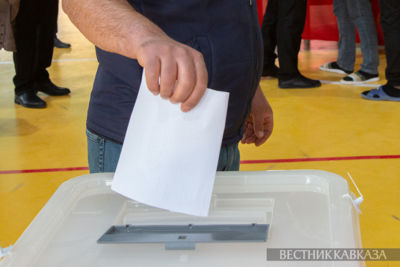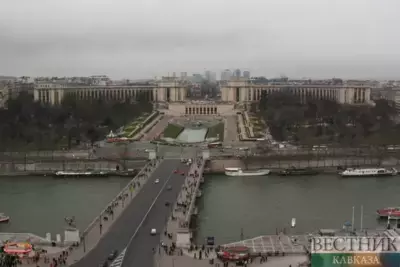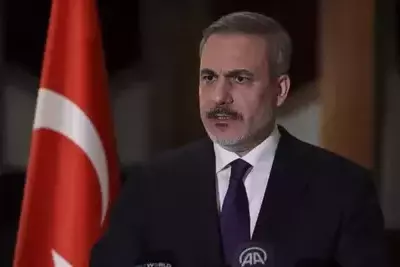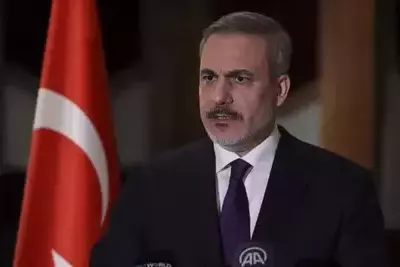A meeting of the discussion platform 'Tverskay 21st Century' titled 'Shadows of the Cold War: Russia and the West in modern reality' was held at the Museum of Contemporary History of Russia yesterday. The editor-in-chief of the magazine 'Russia in Global Affairs', Fyodor Lukyanov, spoke about the changing situation in the Middle East and the new world order in general. He also answered Vestnik Kavkaza’s questions.
- Russian Deputy Foreign Minister Grigory Karasin confirmed plans to hold a trilateral meeting between the Russian Foreign Minister Sergey Lavrov, the Iranian Foreign Minister Mohammad Javad Zarif and the Azerbaijani Foreign Minister Elmar Mammadyarov. What do you expect from the meeting?
- As far as I understood from the information that was circulating publicly, the ministers are going to discuss the transport corridor ‘North-South’, and, in my opinion, it is very important, very necessary, because there is Russian interest not only in concentrating on the Eurasian branch, which is primarily linked with China, but to offer something of our own too. Iran emerged from isolation, it has great ambitions for its economic and political development, and it should be used. Therefore, we can break the deadlock in some new direction to the South. There are many problems connected with this, including the problems, to put it mildly, of not very trusting relations between Azerbaijan and Iran, but it is absolutely necessary. And I think it is no coincidence that Russia is now trying to do this, as well as actively participating in resolving the Caspian problems. Recently we saw the Caspian Sea in a new light, suddenly it appeared with these 'Kalibri' missiles. This is very promising. I think it is very right that Russian diplomacy initiates this.
- What can you say about the economic situation in Iran after the lifting of sanctions? Is it ready to cooperate not only with Russia and Azerbaijan, but also with the EU and the USA?
- This process cannot be completed in one second. Still, the sanctions were lifted just a couple of months ago, the turns are long and the machine is quite clumsy. I think the EU will make every attempt to return to the Iranian market, the European countries were always there, and only the extraordinary circumstances supplanted them. And even during the Islamic regime many Europeans have been trying to work there. Now Iran wants to become a kind of India, a country where everyone wants to sell something, to build something, and the country itself can choose. But there are many obstacles, because much will depend on how the relations between Iran and the US will form, because we see that the political atmosphere in the US regarding Iran and the concluded nuclear deal, is, to put it mildly, unfortunate. That is, a lot of criticism, threats that after Obama they will reconsider the deal, I do not think they will do it, but in any case, it will always be some obstacle, Congress would always put a spoke in the wheel, so the turn will not be easy. Not to mention the fact that Iran, I think, in general, quite soberly assesses the West and understands that it cannot be trusted. They can cooperate, but always understand that all this can change in a moment.
- How will the situation develop in the Middle East?
- The Middle East is sinking into an abyss, and, unfortunately, our successes in Syria would not stop this process. They can slow it down, make some small islands, on which we can rely, but overall, the Middle East, as it was designed, and it was artificially created in the 20th century, it is disappearing, it will not exist. And Syria will no longer ever be what it was, and Iraq will not. And in that moment when the first independent Kurdish state appears, this will be the end of the Middle Eastern system, which was created after World War I and was further strengthened. This means that no one can control this process, we can try to reduce the risks for ourselves. The Russian operation in Syria was implemented exactly for this. America cannot and will not act like they used to in the Middle East, so there is no sense in working one's fingers to the bone and trying to show strength.
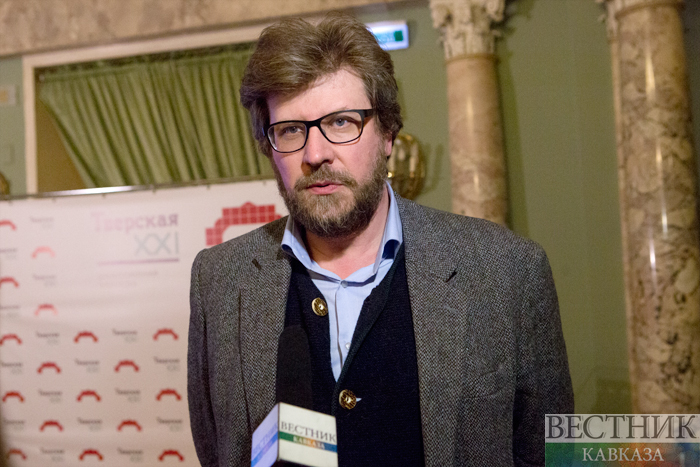
- What do you think about the level of Russian-American relations?
- The Cold War was a unique period in the history of the international system. It was probably the most stable period of the world system in history. Neither before nor after the period, it was more stable and would be, because the Cold War was based on the balance of powers between the two superpowers. The second half of the Cold War, despite Vietnam, Afghanistan, conflicts in the Middle East in terms of the structural arrangement of the world, was a very stable period. And this stability ceased to exist, because one of the poles disappeared – after 1991 there was growing chaos in the world, because no unipolar system emerged. The world’s structure that existed in the 20th century is falling apart. America is changing, and what is happening in the presidential election campaign is leading to the appearance of absolutely incredible figures. [Donald] Trump reminds me most of all not even of [Vladimir] Zhirinovsky, but [Vladimir] Bryntsalov, who was a presidential candidate in 1996, such a vulgar boor. Trump repeatedly wins the primaries, because people are simply tired of the whole political elite. [Bernie] Sanders is another example of such a dull, dreary professor of political economy of socialism, at the same time, the young generation stands for him, because, really, he says things that nobody else says. That is, America is changing, America will be different. And I would not dare to predict today what kind of relations we will have in ten years. But I think that somehow America is reaching a brink, when there will be a change of the political elite, real change will occur. Because the current elite has really discredited itself.
Russia has never been satisfied with the place that it has been given. The West has never understood what Russia doesn’t like. If we do not brake (because we always have to weigh our military and political ambitions to the real economic opportunities), there will be a psychological turning point at some moment, we will get used to the fact that Russia, it turns out, is not what we thought we got after 1991. International politics is a struggle. If you have ambitions, it is quite natural that others do not like it. This is a natural process. The main thing is not to overestimate our strength.







